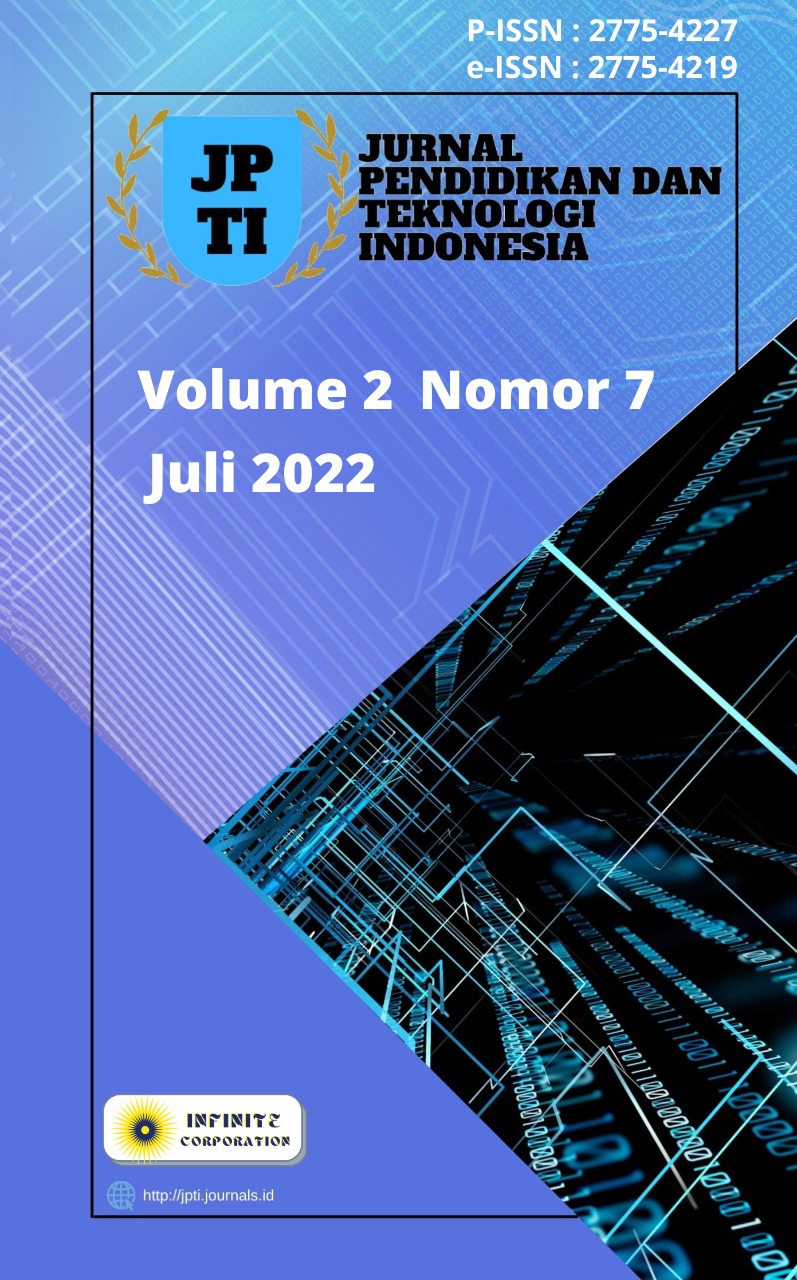Meningkatkan Prestasi Akademik Mahasiswa dengan Cognitive Behaviour Therapy
DOI:
https://doi.org/10.52436/1.jpti.192Kata Kunci:
cognitive behavior therapy, mahasiswa, prestasi akademikAbstrak
Tidak semua mahasiswa mampu menjalani proses perkuliahan dengan baik dan memperoleh prestasi akademik sesuai harapan. Sebagian mahasiswa memiliki IP yang rendah walaupun sudah belajar lebih giat. Sehingga mahasiswa merasa kecewa mahasiswa yang beranjut pada munculnya distorsi kognitif dan perilaku maladaptif. Mahasiswa perlu dibantu untuk mengatasi kondisi tersebut, salah satu caranya adalah dengan melakukan cognitive behaviour therapy (CBT). CBT merupakan psikoterapi yang efektif mengatasi beberapa masalah psikologis. Penelitian ini bertujuan untuk mengetahui pengaruh cognitive behaviour therapy terhadap prestasi akademik mahasiswa. Penelitian ini merupakan penelitian quasy experiment, pre and posttest without control group design. Sampel dipilih secara purposive sampling. Penelitian dilakukan pada bulan Maret – Agustus 2018. Sampel dipilih menggunakan teknik purposive sampling, dengan kriteria mahasiswa aktif yang memiliki IPK <2,75, mengalami distorsi kognitif, dan bersedia menjadi responden. Data dianalisis secara univariat dan bivariat dengan uji dependent t-test. Hasil uji bivariat diperoleh nilai p= 0,084 untuk nilai IP semester dan nilai p=0,048 untuk nilai IPK. Kesimpulannya adalah CBT berpengaruh terhadap perubahan IPK mahasiswa, namun tidak berpengaruh terhadap perubahan nilai IP. Diperlukan sesi lebih panjang untuk dapat mempertahankan perilaku tetap adaptif.
Unduhan
Referensi
R. B. Mennuti, R. W. Christner, and A. Freeman, Cognitive Behavioral Intervention in Educational Setting, 2nd ed. New York: RoudledgeTayloy and Francis Group, 2012.
A. Manuntung, “Pengaruh Cognitive Behavioral Therapy (CBT) terhadap Self Efficacy dan Self Care Behavior pada Pasien Hipertensi,” Mutiara Med., vol. 15, no. 1, pp. 39–50, 2015.
R. Arjadi, “Terapi Kognitif Perilaku untuk Menangani Depresi pada Lajut Usia,” Universitas Indonesia, 2012.
E. Y. Siregar and R. H. Siregar, “Penerapan Cognitive Behavior Therapy (CBT) Terhadap Pengurangan Durasi Bermain Games Pada Individu Yang Mengalami Games Addiction,” J. Psikol., vol. 9, no. 2, pp. 17–24, 2013.
S. Alimah and K. G. Swasti, “Gambaran Burnout pada Mahasiswa Keperawatan di Purwokerto,” J. Keperawatan Soedirman, vol. 11, no. 2, pp. 130–141, 2016, doi: 10.20884/1.jks.2016.11.2.709.
G. W. Stuart, Principles and Practice of Pshychiatric Nursing, 9th ed. Louis Missouri: Mosby Elsevier, 2009.
I. Nursoleah, K. G. Swasti, and T. Setiono, “Hubungan Kesulitan Belajar Dengan Perilaku Adaptive Help Seeking Pada Mahasiswa Luar Pulau Jawa Di Universitas Jenderal Soedirman,” Universitas Jenderal Soedirman, 2018.
E. B. Hurlock, Psikologi Perkembangan?: Suatu Pendekatan Sepanjang Rentang Kehidupan. Jakarta: Erlangga, 2011.
J. S. Flanagan and R. S. Flanagan, Counseling and psychotherapy theories in context and practice: Skills, strategies, and techniques. New Jersey: John Wiley & Sons inc, 2004.
R. Nurlette, K. G. Swasti, and T. Setiono, “Faktor-faktor yang mempengaruhi kecemasan dalam proses perkuliahan mahasiswa Unsoed asal Maluku,” Universitas Jenderal Soedirman, 2014.
Spiegler and Guevremont, Contemporary Behavior Therapy, 4th ed. USA: Thomson Wadsworth, 2003.
J. A. Lim et al., “Cognitive-behavioral therapy for patients with chronic pain: Implications of gender differences in empathy,” Med. (United States), vol. 97, no. 23, pp. 1–8, 2018, doi: 10.1097/MD.0000000000010867.
F. Hashemi, A. A. poor, and A. Feili, “The Effectiveness of Cognitive Behavioral Stress Management Therapy on Happiness among Infertile Women,” Armaghane Danesh, vol. 18, no. 9, pp. 678–686, 2013.
D. M. Ehde, T. M. Dillworth, and J. A. Turner, “Cognitive-behavioral therapy for individuals with chronic pain: Efficacy, innovations, and directions for research,” Am. Psychol., vol. 69, no. 2, pp. 153–166, 2014, doi: 10.1037/a0035747.
NACBT, “Cognitive Behavioral Therapy,” 2007. [Online]. Available: http://www.nacbt.org/whatiscbt.html/5 Januari 2007. [Accessed: 05-Oct-2017].
E. Mayo-Wilson and P. Montgomery, “Media-delivered cognitive behavioural therapy and behavioural therapy (self-help) for anxiety disorders in adults (Review),” Cochrane Database Syst. Rev., no. 9 Art. No.: CD005330, pp. 1–498, 2013, doi: 10.1002/14651858.cd005330.






















